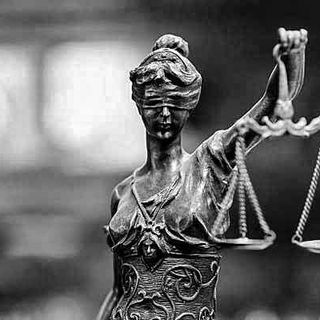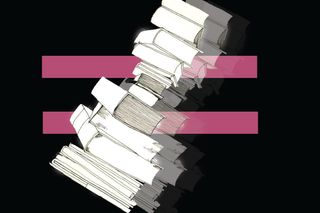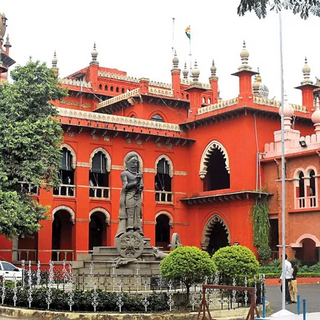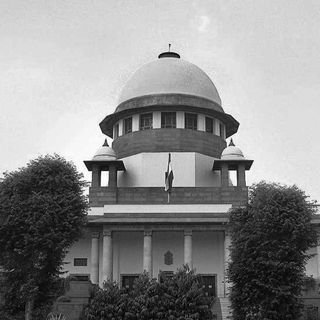
How the Indian Education System Reinforces Caste, Class Differences
“We are raising children who understand poverty as a problem they do not contribute to.”

In January, Hardik Pandya’s misogyny and male privilege on Koffee with Karan led to widespread outrage on social media. While the outrage was warranted, many of the comments made about the issue point us towards another kind of privilege that we urgently need to start talking about: class privilege. An overwhelmingly large number of people used words such as sadak chaap, uneducated, level, and aukaat to say ‘Look, he may be rich, but he’s still one of them.’ A quick search on Facebook for “Hardik Pandya, Koffee With Karan,” will lead you to several comments dating from the time of that incident, which range from “He looks like an auto driver” to “This is a reflection of his lack of education, and low upbringing.” Pandya’s misogyny was believed to be a direct result of where he stood in the socio-economic order. Ironically, fierce individuals — believing themselves to be true feminists and social justice warriors fighting for a group’s right to be treated with respect and dignity — flaunted their class privilege in order to call out Pandya’s gender privilege. The question we need to be asking, though, is — did these commenters even realize their hypocrisy, and the privilege behind it?
Think back to the time spent in school. Did anyone ever broach the subject of one’s own class privilege?
A safe answer to that question is no. Students from the middle- and upper-classes, usually studying in private schools and taught by teachers from similar socio-economic backgrounds, are rarely made to think about their role in perpetuating inequity. Think about it: While learning about the caste system that plagues many parts of our country, were class-based differences and their prevalence in cities associated with the concept? While teaching that a lack of education perpetuates bias and discrimination, did the teacher speak about how privilege might be perpetuated by the education itself? When being prodded to think of solutions, was introspection about one’s own privilege a part of the conversation?
Recognizing our privilege
Privilege is defined as holding historical, social and institutional power. This means that the privileged, for generations, develop, work and live within structures that are designed to favor and reaffirm them. How does this happen? Dr. Diane J. Goodman, in Promoting Diversity and Social Justice: Educating People from Privileged Groups, lays out a few characteristics of privileged groups: Since privileged groups occupy most positions of power, their characteristics become the cultural and social norm. Take, for example, how individuals are judged on their diction when speaking in English. Since most individuals belonging to upper classes speak English in a certain way, anyone who does not match the ‘expected standard’ is seen as inferior. The characteristics of the privileged, reinforced by better education opportunities, define normalcy and become the reference points against which others are judged.Those characteristics, apart from being the norm, are also viewed as ‘better.’
Related on The Swaddle:
How Caste Has Always Shaped Desire, Desirability
Again, think about a phrase that’s often used in Indian society: ‘They’re from a good family.’ This is almost always used to indicate that the family is educated and of a particular stature, implying that families with individuals who may be uneducated and belong to a lower class are not ‘good’ families. This sense of superiority, says Goodman, gets transferred from privileged groups to the individuals themselves — so much so that the same trait gets tagged differently within different groups: an upper-class member advocating for themselves to get a raise is someone who values their worth, while a domestic worker negotiating for a higher wage is greedy. Lastly, since they occupy positions of power and dictate the norms of society, “the privileged group creates systems and structures that reflect its values, embodies its characteristics, and advances its interests,” Goodman writes.This cultural and institutional dominance ensures that individuals from privileged groups are never required to think about the advantages society affords them. Every aspect of their lives is seen as the norm, while other people’s conditions are seen as the exception. This allows them to believe that everything they achieve, they achieve due to their own merit.
The children of the privileged, through abundant educational resources and opportunities, go on to assume powerful positions, never having examined the systems that give them their privilege, thus upholding the status quo. In the social sector, this presents itself in the form of organizations that claim to fight for the oppressed, but never think to make the oppressed a part of the decision-making. Many educators in the social sector preach hard work and grit, but fail to acknowledge the fact that their students will struggle to find acceptance, no matter how educated they are, until they look and sound like the privileged too. Instead of being given tools to navigate and dismantle this systemic oppression, students are taught how to speak English the way their upper-class educators do and are lent dreams that fit the privileged idea of a successful life. This puts the onus on the oppressed to conform, and relieves the privileged of their responsibility to reevaluate. An example of this in policy is the new amendment to the Right To Education Act: It scrapped the No Detention Policy that mandated students be promoted to the next class, but be given adequate support to reach the required learning level. As a result, the policy puts the onus on children in government schools to receive a good education and relieves the state of its responsibility to provide a good education.
Another policy example that points us towards class privilege is the widely debated 10% reservation for economically weaker sections, which instills quotas in jobs and educational institutes for families with an income below Rs. 8 lakh a year, or who own fewer than five acres of agricultural land. The bill was seen by many as a move to appease the upper classes; but why did they need to be appeased in the first place? Students and families belonging to general categories often lament about the ‘reservation scam’ in our country. They pick up singular cases of individuals who belong to Scheduled Castes or Scheduled Tribes, but are financially well-off, to talk about how unfair the system is for those who belong to the general category. They believe that affirmative action gives others an unfair advantage, and that belief often makes individuals belonging to SCs, STs and Other Backward Classes (OBCs) vulnerable in institutions and workplaces. For example, two-thirds of the difference in employment rates between SCs and upper castes was due to discrimination against SCs in the hiring process, according to a joint paper published in 2018 in the Journal for Social Inclusion Studies, the Hindustan Times reported.
Dismantling privilege through education
This is not to say that interventions targeted at oppressed groups should not exist – they absolutely must. However, as mentioned by Anand Giridharadas in his book Winners Take All, equity demands that the privileged not just give back, but also begin to give up. They must start facing their privilege, and find ways to break down the systems that create an unfair power dynamic. Katy Swalwell, in Educating Activist Allies: Social Justice Pedagogy with the Suburban and Urban Elite, mentions that an important strategy in interrupting injustice is ensuring that students from privileged communities are “exposed to a critical examination of society and engaged to orient themselves towards justice.” Instead of spending time telling the privileged what the oppressed don’t have, we need to spend time getting them to reflect on why the privileged have what they already do.
Related on The Swaddle:
The Importance of Inclusive Education for All Kids
However, our education system fails miserably in this regard. Our schools continue to be segregated on the basis of class, with recognized private schools catering to the well-to-do, and government schools catering to those who cannot afford to pay for an education, much like many school systems in the U.S. continue to be effectively, if no longer legally, segregated on the basis of race. Our private schools enable students to maintain their blind spots by never having to confront their privilege or examine their biases. We are raising children who understand poverty as a problem they do not contribute to, and who attribute the failure of a system to those oppressed by that system, or by parties separate to themselves. Since their norms are established as superior, these children also grow up seeing no benefit in interacting with those who belong to ‘inferior’ social groups, thus maintaining the hierarchical structure. That is how privilege thrives: through ignorance.
The ‘Happiness Curriculum,‘ a curriculum that focuses on mindfulness and holistic education implemented by the Delhi government, aptly recognizes that a school’s responsibility is not restricted to content knowledge. If we truly want to strive for education equity, schools catering to privileged groups must be mandated to teach their students about privilege and subconscious discrimination. We need to raise citizens who are as angry when they hear the word ganwaar used as an insult, as they are when they hear the word gay or slut being used in the same vein. We need to teach them how to question their worldviews and the systems within which they exist — why they demand certain conditions for themselves, but deny them to others. We need to teach them to question how their everyday lives help uphold this toxic power dynamic, and what they can do to change it, so that they hold within themselves an obligation to work towards justice. Only then can we talk about equity.
Sanya Sagar has been working in the education sector for more than five years, and has worked with government schools in Delhi, Bihar and Jharkhand. She holds a Master's of Education specializing in learning and teaching; during her Master's, she ran an independent study under the mentorship of Dr. Aaliyah El-Amin looking at how classism impacts perceptions and education systems in India, and the need for social justice education in middle- and high-income schools in the fight for education equity.
Related


Madras HC Acknowledges Trans Woman As a Bride
